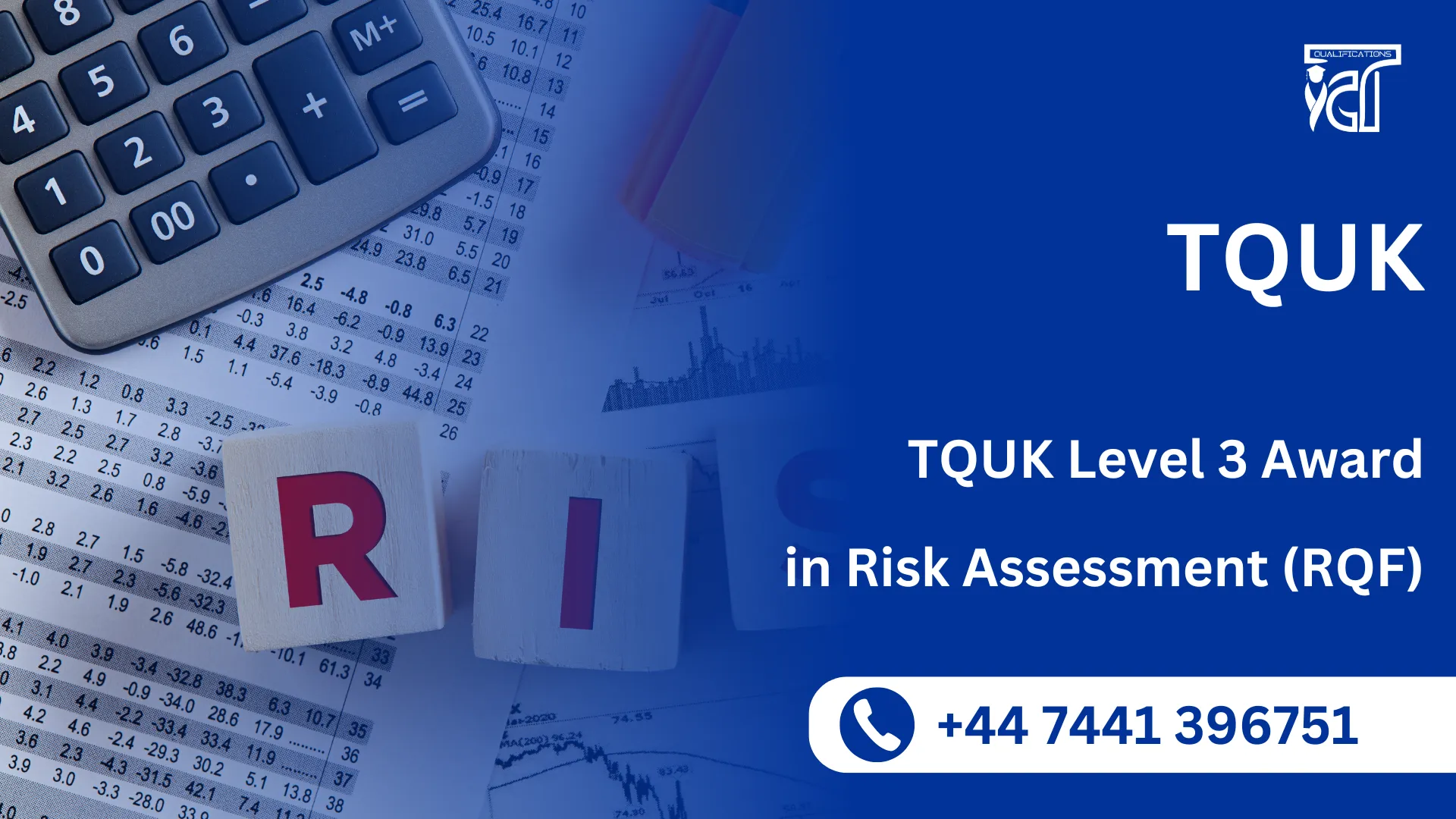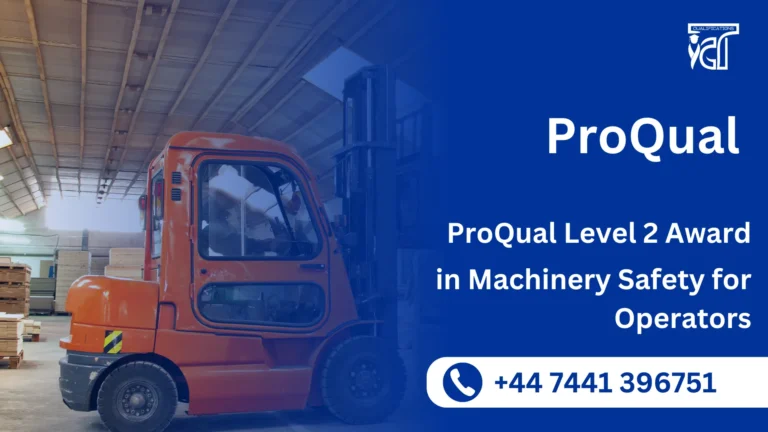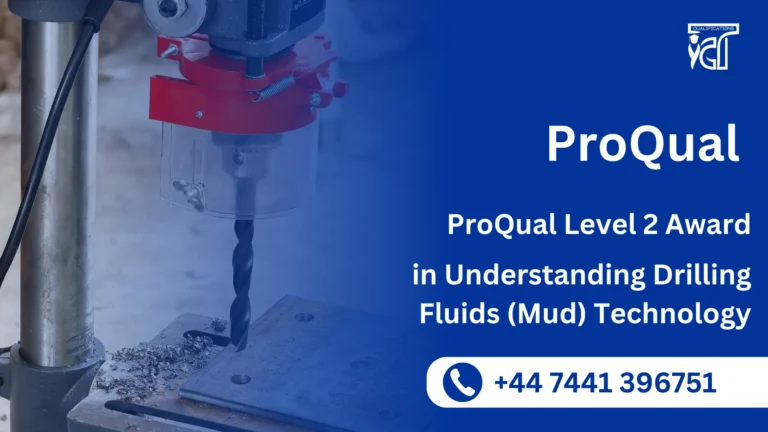In today’s dynamic work environments, understanding and managing risks is essential for any organization. Whether you’re working in construction, healthcare, manufacturing, or any other industry, having the skills to assess and manage risks can significantly improve safety and productivity. The TQUK Level 3 Award in Risk Assessment (RQF) is an Ofqual-regulated qualification designed to equip professionals with the knowledge and skills to carry out effective risk assessments in a variety of workplace settings.
This qualification is entirely assignment-based, ensuring that learners gain practical, real-world skills to manage risks in their roles.The TQUK Level 3 Award in Risk Assessment (RQF) is a comprehensive qualification that focuses on the principles and practices of effective risk assessment. It is designed to provide learners with the necessary skills to identify hazards, assess risks, and implement control measures to mitigate risks in a workplace environment.
This qualification is ideal for professionals responsible for managing risk in their workplace, including managers, supervisors, safety officers, and anyone tasked with ensuring workplace health and safety.
The TQUK Level 3 Award in Risk Assessment (RQF) is an essential qualification for anyone involved in workplace safety and risk management. It provides learners with the critical skills to identify hazards, assess risks, and implement effective control measures, ensuring a safer and more compliant workplace. Whether you’re a health and safety professional, manager, or supervisor, this qualification will help you advance your career while enhancing the safety and wellbeing of your workplace.
TQUK Level 3 Award in Risk Assessment (RQF)
The TQUK Level 3 Award in Risk Assessment (RQF) consists of 1 mandatory unit, 2 credit value, and 20 Guided Learning Hours (GLH) for this qualification.
| Sr# | Unit Title | Credit Hours |
|---|---|---|
| 1 | Risk Assessment Principles and Practices | 2 |
GLH (Guided Learning Hours) and TQT (Total Qualification Time) are terms commonly used in vocational qualifications to help define the amount of time a learner is expected to spend on their studies.
1. GLH (Guided Learning Hours)
GLH refers to the number of hours a learner spends being directly taught, supervised, or supported during their course. This includes the time spent in activities such as:
- Classroom instruction
- Practical workshops
- One-on-one tutoring or mentoring sessions
- Online learning sessions with tutor support
In other words, GLH represents the time that learners are actively engaged with their instructors or learning activities.
2. TQT (Total Qualification Time)
TQT represents the total amount of time a learner is expected to invest in completing a qualification, including:
- GLH (Guided Learning Hours): Time spent on direct learning, as explained above.
- Self-Directed Learning: This includes time spent on independent study, research, assignment completion, preparation for exams, and any other work the learner does outside of direct teaching hours.
TQT is a broader measure that includes all the time required to achieve the qualification. It helps learners and employers understand the overall commitment required for the qualification.
Key Differences Between GLH and TQT:
- GLH focuses on direct learning with guidance or supervision.
- TQT includes GLH as well as independent study time and other learning-related activities.
Example:
If a qualification has a TQT of 600 hours and a GLH of 250 hours, it means the learner should spend 250 hours in direct learning (classroom, online, or tutor-led sessions) and 350 hours on independent study or research.
Learning Outcomes for the Study Unit: Risk Assessment Principles and Practices
Upon completing the study unit Risk Assessment Principles and Practices as part of the TQUK Level 3 Award in Risk Assessment (RQF), learners will achieve the following outcomes:
- Understand the Core Principles of Risk Assessment:
- Gain a solid understanding of the fundamental principles that underpin effective risk assessment, including hazard identification, risk evaluation, and the implementation of control measures.
- Learn the role of risk assessments in ensuring workplace safety and compliance with relevant regulations.
- Comprehend the Risk Assessment Process:
- Demonstrate knowledge of the step-by-step process of conducting a risk assessment, from identifying hazards to evaluating risks and implementing control measures.
- Understand how to conduct both qualitative and quantitative risk assessments, ensuring appropriate methodologies are applied based on the situation.
- Apply Risk Assessment Techniques:
- Develop the ability to apply appropriate risk assessment techniques in various workplace settings, including both routine and high-risk environments.
- Learn how to use different tools and methods (such as risk matrices) to assess the likelihood and impact of identified hazards.
- Identify and Evaluate Workplace Hazards:
- Learn to systematically identify workplace hazards, considering various factors such as machinery, chemicals, environmental risks, and human factors.
- Gain skills to assess the severity and probability of risks associated with these hazards, ensuring that all relevant factors are considered during the evaluation.
- Develop Effective Control Measures:
- Understand how to recommend and implement appropriate control measures to mitigate or eliminate risks, based on the outcomes of the risk assessment.
- Explore a range of control strategies, including elimination, substitution, engineering controls, administrative controls, and personal protective equipment (PPE).
- Ensure Compliance with Legal and Regulatory Requirements:
- Understand the legal frameworks and regulatory requirements that govern risk assessments in the workplace.
- Ensure that risk assessments meet the health and safety regulations required by law, and learn to maintain up-to-date documentation for compliance purposes.
- Communicate Risk Assessment Findings Effectively:
- Learn how to present and document risk assessments clearly and effectively to stakeholders, ensuring that risk mitigation measures are understood and actionable.
- Develop the ability to provide clear and actionable recommendations to improve workplace safety based on the findings of your risk assessment.
- Review and Monitor Risk Assessments:
- Gain the knowledge to periodically review and update risk assessments to account for changing circumstances, new hazards, or evolving safety standards.
- Understand how to monitor the effectiveness of implemented control measures and make adjustments as needed.
Benefits of the TQUK Level 3 Award in Risk Assessment (RQF)
The TQUK Level 3 Award in Risk Assessment (RQF) offers significant benefits for both individuals and organizations looking to enhance their risk management capabilities. Whether you’re working in health and safety, facilities management, or any industry with safety concerns, this qualification provides the essential knowledge and practical skills required for effective risk assessment. Here are the key benefits of completing this course:
1. Ofqual Regulated Qualification
The TQUK Level 3 Award in Risk Assessment (RQF) is an Ofqual-regulated qualification, ensuring that the content and assessment meet high national standards. This provides credibility and recognition, making it a trusted qualification for employers and regulatory bodies both in the UK and internationally.
2. Assignment-Based Learning for Practical Knowledge
The course is entirely assignment-based, allowing you to apply the theoretical knowledge gained in real-world scenarios. This hands-on approach helps reinforce your learning and makes sure you are well-prepared to assess risks in your professional environment effectively.
3. Flexibility in Learning
The qualification offers flexible study options, enabling you to complete the course at your own pace. This flexibility is ideal for working professionals who need to balance their learning with other commitments. You can tailor the course to your schedule, making it easier to achieve your career goals without disrupting your work life.
4. Increased Career Opportunitie
Having a qualification in risk assessment can significantly enhance your career prospects. Whether you’re looking to advance within your current organization or seeking new opportunities, employers highly value professionals with risk assessment expertise. This course prepares you for roles such as Health and Safety Officer, Risk Manager, and Safety Consultant.
5. Improved Workplace Safety
By completing this qualification, you’ll be equipped with the skills to identify and assess risks effectively, ensuring a safer working environment. This can help reduce accidents, protect employees, and mitigate risks that may negatively impact the organization, enhancing overall workplace safety.
6. Comply with Health and Safety Regulations
The course will help you understand the legal frameworks and regulations surrounding health and safety in the workplace. With up-to-date knowledge of relevant laws, you’ll ensure that your risk assessments are compliant with the latest health and safety legislation, reducing legal risks for your employer and contributing to a safer work environment.
7. Enhance Your Risk Management Skills
Through this qualification, you will develop the ability to perform comprehensive risk assessments. You’ll learn how to identify hazards, evaluate risks, and implement control measures, which are crucial skills for ensuring workplace safety and managing potential threats.
8. Contribute to Organizational Success
Organizations that prioritize safety and risk management benefit from reduced downtime, fewer accidents, and improved productivity. As a qualified risk assessor, you will be a key player in helping your organization avoid costly accidents, improve operational efficiency, and meet compliance standards.
9. Develop Essential Analytical and Decision-Making Skills
The course helps you hone critical analytical and decision-making skills, as you’ll learn to assess the severity and probability of risks and decide on the most appropriate control measures. These skills are transferable to many other roles within an organization, enhancing your overall professional development.
10. Career Progression and Further Qualifications
The TQUK Level 3 Award in Risk Assessment (RQF) serves as a foundation for those seeking to further their careers in health and safety or risk management. After completing this course, you can progress to more advanced qualifications, such as the Level 4 Award in Health and Safety or other specialized risk management courses.
11. Enhanced Employabilit
Risk management is a critical skill that employers actively seek, particularly in industries like construction, healthcare, manufacturing, and engineering. By gaining this qualification, you will improve your employability in sectors that require skilled professionals to manage safety risks effectively.
12. Supports Organizational Risk Management Cultur
For employers, having staff trained in risk assessment ensures that safety is a priority at every level of the organization. With a better understanding of risk assessment principles, your workforce can contribute to developing and maintaining a strong culture of safety and risk awareness within the organization.
13. Real-World Application
This qualification enables you to apply your learning directly to real-life work situations. Whether you are assessing risks in a construction site, factory, office, or healthcare environment, the practical nature of the course ensures that you can take immediate action to mitigate hazards and improve safety.
Best Fit for the TQUK Level 3 Award in Risk Assessment (RQF)
The TQUK Level 3 Award in Risk Assessment (RQF) is ideal for a wide range of professionals and organizations looking to develop or enhance their understanding of risk management and workplace safety. The course is well-suited for those who want to improve their risk assessment skills and ensure their workplace complies with health and safety regulations. Below are the key profiles of individuals who will benefit most from this qualification:
1. Health and Safety Professionals
This course is an excellent fit for Health and Safety Officers or Managers looking to formalize or enhance their risk assessment skills. It provides in-depth knowledge and practical tools to conduct effective risk assessments, ensuring safety protocols are robust and compliant.
2. Facilities Managers
Facilities Managers responsible for overseeing workplace safety, security, and compliance will find this qualification invaluable. It will enable them to identify hazards, assess risks, and implement effective control measures to maintain a safe working environment for all employees.
3. Human Resources (HR) Professionals
HR professionals who are involved in the health and safety of employees, especially in managing workplace hazards, can benefit greatly from this course. Understanding risk assessment principles can help in ensuring that employee health and well-being are prioritized in the workplace.
4. Supervisors and Team Leaders
Supervisors or team leaders who are responsible for day-to-day safety and risk management within their teams will gain valuable knowledge and practical experience in risk assessment. This course empowers them to identify potential hazards and address them proactively.
5. Managers in High-Risk Environments
Professionals working in high-risk environments, such as construction, manufacturing, and healthcare, can significantly benefit from this course. It equips them with the skills to identify risks specific to their industry and implement safety strategies accordingly.
6. Individuals Seeking Career Advancement in Health and Safety
If you’re looking to start a career or advance in the field of health and safety management, the TQUK Level 3 Award in Risk Assessment (RQF) provides the foundation needed to build expertise in risk assessment. It helps those new to the field or looking to progress into health and safety roles to develop the essential skills needed to assess and manage risks.
7. Business Owners or Entrepreneurs
Small business owners or entrepreneurs who want to ensure their organization adheres to health and safety regulations can benefit from this course. It provides the knowledge to manage risks effectively and implement necessary safety measures, reducing the likelihood of accidents or legal issues.
8. Consultants in Health and Safety
Health and safety consultants who want to add a risk assessment qualification to their credentials will find this course beneficial. It provides a comprehensive understanding of risk assessment principles, making it easier to provide clients with expert advice and guidance on managing risks.
9. Anyone Interested in Improving Workplace Safety
Anyone working in any role or sector that requires a sound understanding of workplace safety and risk management will benefit from this qualification. It provides the knowledge and tools to assess and mitigate potential risks, ensuring a safer and more compliant work environment.
Entry Requirements
Register Now
Qualification Process
Qualification Process for the TQUK Level 3 Award in Risk Assessment (RQF)
- Self-Assessment:
Begin by evaluating your eligibility to ensure you meet the qualification requirements, including work experience, knowledge, and language proficiency. - Registration:
Complete your registration by submitting the required documents, including a scanned copy of a valid ID, and paying the registration fee. - Induction:
An assessor will conduct an induction to confirm your eligibility for the course and explain the evidence requirements. If you do not meet the criteria, your registration will be canceled, and the fee will be refunded. - Assignmnets & Evidence Submission:
Provide all assignmnets and the necessary evidence based on the assessment criteria outlined in the course. If you are unsure of the required evidence, consult with the assessor for guidance on the type and nature of evidence needed. - Feedback and Revision:
The assessor will review your submitted evidence and provide feedback. Evidence that meets the criteria will be marked as “Criteria Met,” while any gaps will be identified. You will be asked to revise and resubmit if needed. - Competence Evidence:
Submit final evidence demonstrating that all learning outcomes have been met. This evidence will be marked as “Criteria Met” by the assessor once it is satisfactory. - Internal Quality Assurance (IQA):
The Internal Quality Assurance Verifier (IQA) will review your evidence to ensure consistency, quality, and compliance with standards. - External Verification:
The IQA will submit your portfolio to TQUK External Quality Assurance Verifiers (EQA) for final confirmation. The EQA may contact you directly to verify the authenticity of your evidence. - Certification:
Upon successful completion of all checks, TQUK will issue your official certificate, confirming that you have attained the TQUK Level 3 Award in Risk Assessment (RQF).







